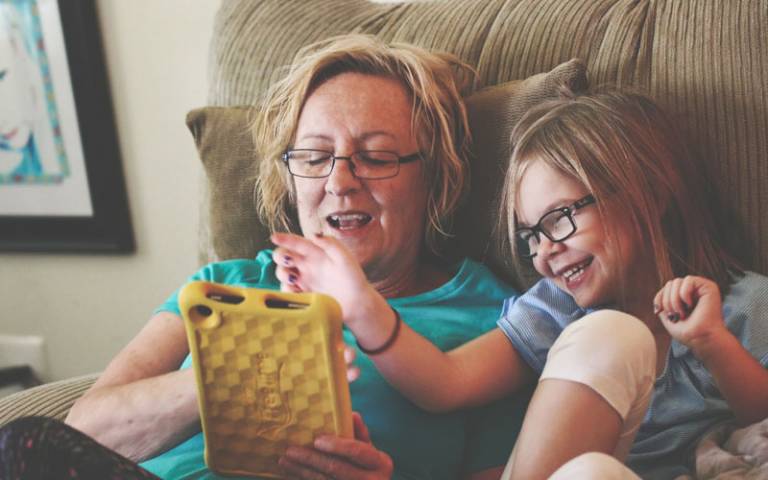Ideas and resources to support younger children with learning, social skills and resilience.

So much of what happens naturally when we are playing games with younger children are in fact the building blocks for successful learning, developing social skills and building resilience.
Characteristics of effective learning can be split into three categories:
1. Playing and exploring: encouraging engagement with the world around them
- Curiosity
- Pretending
- Risk taking.
2. Active learning: developing motivation
- Involvement
- Persistence
- Satisfaction.
3. Creating and thinking critically: problem solving
- Making links
- Testing out ideas.
Ideas and resources
Learning through play
Use play to stimulate talk.
Resources
The Communication Trust has a wide range of resources for parents to help all children develop their speech and language skills. Many of these are play-based activities, such as throwing a ball to practise ‘turn-taking’ in conversation:
- Resources for parents
- Summer talk - activities designed for holidays
- Raa Raa the Noisy Lion - downloadable activities to do alongside the BBCs ‘Raa Raa Lion’.
Ways of encouraging communication
Research from IOE, as part of 'The Better Communication Research Project', suggests that we think about 3 key areas to help stimulate communication and learning for younger children.
> The environment
- Open space is emphasised.
- Toys and objects are available for free-play.
- Children’s work is displayed and labelled.
- Displays invite discussion.
- There are specific reading areas.
- There are quiet, relaxing spaces.
> Interactions with children
- Adults use child’s name.
- Adults get down to child’s level.
- Pacing is slow, with time to respond.
- Adults encourage turn-taking in conversation.
- Adults use props and real life examples.
- Adults use gestures, pictures and signs.
- Small group interactions are encouraged.
> Creating opportunities to develop language and vocabulary
- Structured activities to stimulate talking.
- Interactive book reading, with prompt questions such as predictions and opinions.
- Including all children in group activities.
- Encouraging child-to-child talk.
- Opportunities for structured conversations with adults.
Resources
- Top talking tips for early years practitioners (YouTube video, LBHounslow) - excellent ideas for engaging younger children and expanding their vocabulary and communication skills.
- Early Years Toolkit (EEF website) - an accessible summary of educational research that provides guidance for on how to use their resources to improve the learning of disadvantaged children. The Toolkit currently covers 12 topics, each summarised in terms of their average impact on learning, the strength of the evidence supporting them and their cost.
 Close
Close

